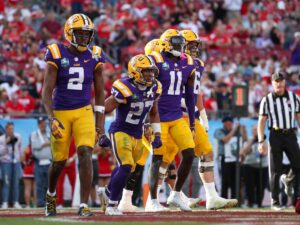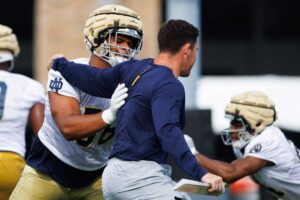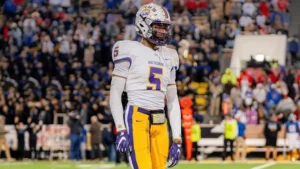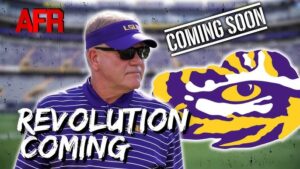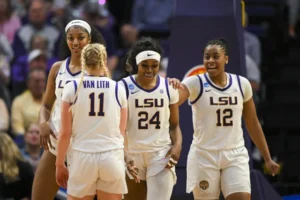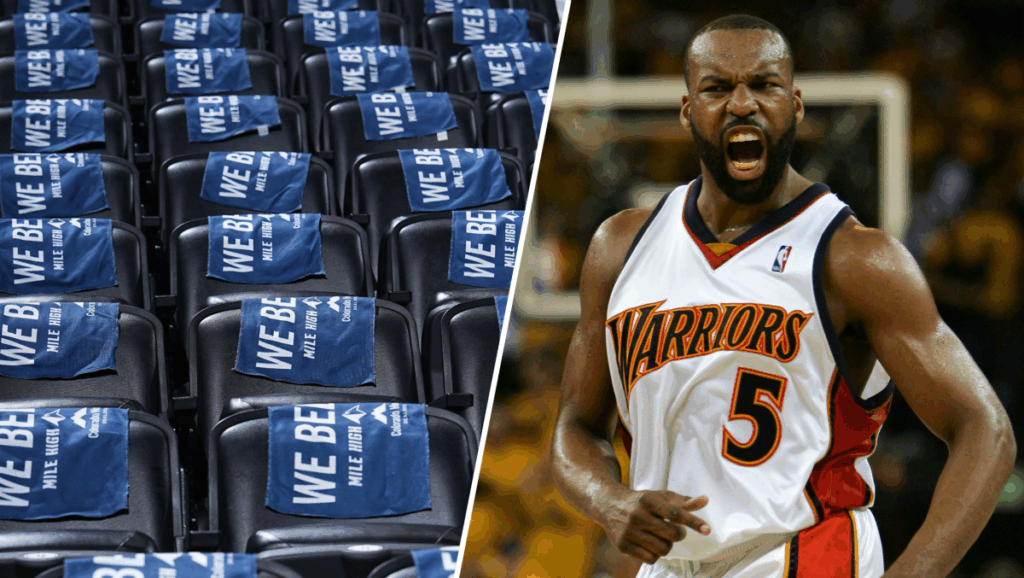
Baron Davis, a key figure in one of the most unforgettable chapters in NBA history, has always been a passionate and outspoken personality, particularly when it comes to the Golden State Warriors. As the architect of the Warriors’ stunning upset over the top-seeded Dallas Mavericks in 2007, Davis was at the heart of a team that embodied a unique spirit, characterized by grit, determination, and belief against all odds. That belief, of course, was captured in the now-iconic “We Believe” mantra, a phrase that resonated not only with Warriors fans but with basketball lovers everywhere.
Recently, Davis made headlines when he expressed his displeasure with the Denver Nuggets, accusing them of appropriating his former team’s mantra and using it as their own. The Nuggets, who had been one of the most dominant teams in the NBA in recent seasons, adopted the “We Believe” phrase during their 2023 playoff run, and for Davis, it felt like a slap in the face to a movement and a legacy he helped create.
The “We Believe” Era: A Quick History
To understand the full weight of Davis’ criticism, it’s important to look back at the Warriors’ “We Believe” era. In 2007, the Warriors were a team on the brink of irrelevance. They had not made the playoffs in over a decade, and their franchise was mostly known for being stuck in the lower rungs of the Western Conference. But then, everything changed.
Under the leadership of coach Don Nelson, the Warriors, led by Davis and a cast of underdog players, emerged as a team to be reckoned with. They finished the regular season as the eighth seed in the West, but it was their performance in the playoffs that truly cemented their place in NBA history. The Warriors faced the top-seeded Dallas Mavericks, a team that had finished with the best record in the league. On paper, the Mavericks were the favorites. But the Warriors, with their fast-paced, undersized style of play and a chip on their shoulder, had other plans.
The 2007 Warriors not only defeated the Mavericks in the first round, they did so in a shocking five-game upset. The Warriors were the first eighth seed in NBA history to knock off a top seed in a seven-game series. The slogan “We Believe” was born out of that series, and it became a symbol of the Warriors’ collective resolve, belief in themselves, and willingness to defy the odds.
Davis, as the team’s emotional leader and best player, was at the center of it all. His clutch performances, gritty play, and leadership helped push the Warriors to an unlikely victory. The phrase “We Believe” embodied the idea that anything was possible, no matter how unlikely or improbable. It was a rallying cry for the underdog, for the overlooked, and for the fans who had stuck with the team through thick and thin.
The Denver Nuggets and the Adoption of the “We Believe” Mantra
Flash forward to 2023, when the Denver Nuggets, led by MVP candidate Nikola Jokić, began their own playoff campaign. The Nuggets had been one of the best teams in the NBA, boasting a potent offense and a defense that had vastly improved under head coach Michael Malone. They had a dynamic and deep roster, and many experts predicted that this would be the year they could make a serious run for the championship.
During their playoff journey, the Nuggets adopted the phrase “We Believe” as part of their branding. Whether it was seen on shirts worn by the players or heard in team huddles and locker rooms, the phrase seemed to be everywhere. For many fans, it was an inspirational symbol of a team that believed in its chances despite the tough competition it was facing.
However, to Baron Davis, this felt like a case of cultural appropriation—a team trying to capitalize on the legacy of another squad without understanding its true significance. Davis has always been protective of the “We Believe” era. To him, it wasn’t just a slogan; it was the embodiment of a particular mindset and a moment in history that the Warriors created. For Davis, the Nuggets’ adoption of the phrase felt like a cheap imitation, an attempt to latch onto a movement that they hadn’t earned.
Baron Davis’ Reaction
Davis didn’t mince words when expressing his feelings about the Nuggets’ use of the “We Believe” mantra. In interviews and on social media, Davis called out the Nuggets for what he considered an improper appropriation of the phrase. “The ‘We Believe’ mantra was ours, and we earned it,” Davis said. “We built something with that energy. The Warriors’ fans lived it, breathed it, and we took down the best team in the league because we believed in ourselves when no one else did. The Nuggets didn’t live through that. They didn’t build that legacy.”
Davis went on to explain that the Warriors’ “We Believe” era wasn’t just about winning games; it was about challenging the status quo. It was about taking a team that was constantly overlooked and giving them the confidence to take on the best. The Nuggets, in his view, had no right to borrow that energy without understanding what it truly represented.
Davis also pointed out the differences between the Warriors and Nuggets during that period. While the Nuggets had been a consistent playoff team for years and were always in contention for a title, the Warriors’ rise to prominence was about overcoming adversity in a way that the Nuggets hadn’t experienced. The Warriors, and particularly Davis, had earned their underdog status. The Nuggets, by contrast, had already been regarded as one of the league’s elite teams by the time they used the “We Believe” slogan.
Cultural Appropriation in Sports
Davis’ criticisms touched on a broader issue of cultural appropriation in sports. The idea of borrowing or mimicking another team’s identity or slogan is not new, but it raises interesting questions about ownership of legacy and symbolism. In the case of the Warriors, “We Believe” was not just a slogan; it was tied to a specific time, place, and team. It was a reflection of the Warriors’ underdog mentality and the connection between the team and its fans, especially in the Bay Area. To have another team, especially one that had already established itself as a powerhouse, adopt the same phrase seemed, to Davis, like an attempt to hijack that sense of authenticity and struggle.
This issue also brings up larger conversations about how athletes, teams, and franchises use cultural symbols. In some cases, sports teams have borrowed slogans, logos, or even team names from historical or cultural movements, sometimes without fully grasping the significance behind them. The “We Believe” mantra, in this sense, was part of a movement for the Warriors—one that was built on years of disappointment, frustration, and, ultimately, triumph.
The Fans’ Role
The Warriors’ fans played an integral role in the success of the “We Believe” movement. The phrase became a rallying cry not just for the players but for the fanbase, who believed in their team when nobody else did. The connection between the Warriors and their supporters became palpable during the 2007 playoff run, and the slogan became a symbol of defying the odds.
In contrast, Davis argued, the Nuggets’ adoption of the phrase felt hollow because it didn’t carry the same emotional weight. While the Nuggets certainly had passionate fans, they had not experienced the same level of hardship and eventual triumph that the Warriors’ faithful had gone through. As a result, Davis believed that the Nuggets’ use of the slogan diluted its true meaning.
The Legacy of “We Believe”
The “We Believe” era will forever be one of the most cherished chapters in Golden State Warriors history. It marked the beginning of a new era for the franchise—one that would eventually lead to championships, MVPs, and global recognition. But it also represented something much deeper: the power of belief. The Warriors had the audacity to believe in themselves when everyone else counted them out. They were a team of misfits, undersized players, and overlooked stars who defied the odds, and that is what made the “We Believe” mantra so powerful.
Baron Davis, as the face of that era, continues to be a proud guardian of that legacy. For him, it’s not just about basketball; it’s about the spirit of underdog resilience. The Nuggets may have had their own remarkable playoff run, but in Davis’ eyes, they hadn’t earned the right to adopt the mantra that had meant so much to the Warriors and their fans.
In the world of professional sports, slogans, chants, and symbols can become deeply entrenched in a team’s identity. The “We Believe” mantra is one of those rare instances where a phrase transcended its initial context, becoming a symbol of resilience and belief for fans and players alike. Baron Davis, the man at the heart of that movement, has every right to defend that legacy. For him, the Nuggets’ use of the phrase is more than just a borrowing of words; it is an attempt to co-opt something that had deep meaning and significance for his team and the Warriors’ fanbase.
While the Nuggets may have had their own inspiring playoff journey, the Warriors’ “We Believe” mantra remains a testament to the power of belief in the face of overwhelming odds—a lesson that Baron Davis and the Warriors made their own in 2007.
